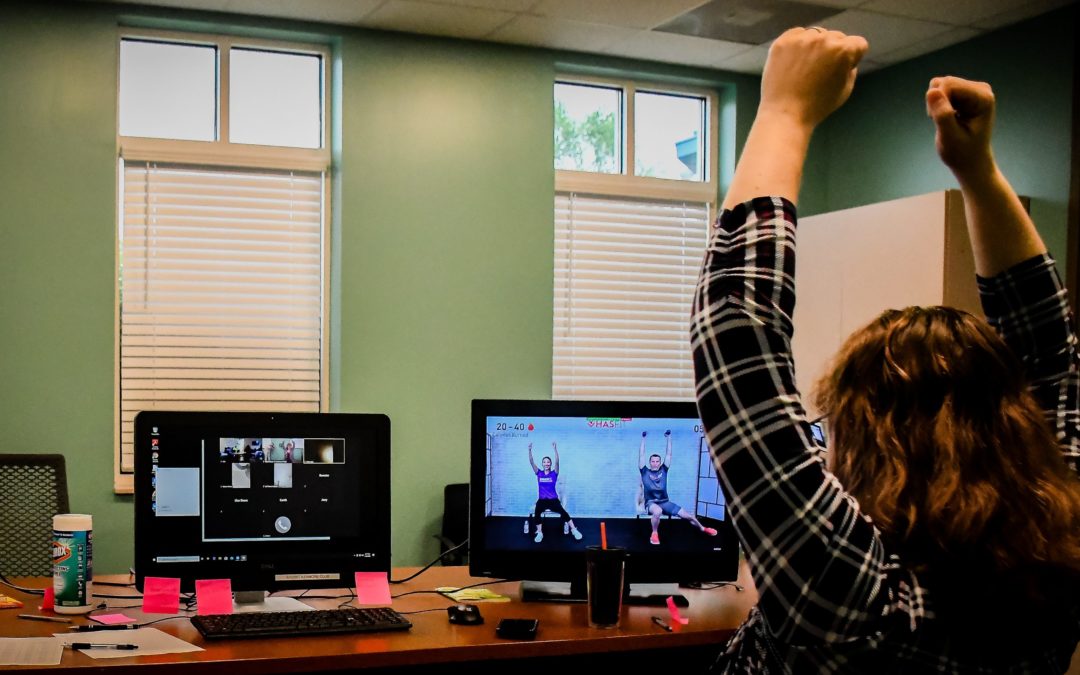As a global pandemic struck our community, the community services board struggled to balance the needs to keep individuals safe with the need to continue services. COVID-19 didn’t erase the need for help with mental illness, substance use disorder, or developmental disability. In fact, it increased those needs.
Rappahannock Area Community Services Board leaders knew that video conferencing could allow individuals to safely receive behavioral healthcare services while social distancing. The agency was already poised to offer telemedicine services, with 10 Zoom licenses that met healthcare privacy regulations. But the CSB would quickly need to increase those licenses by 70, a feat which came with a $15,000 price tag. This added expense came at a time when revenues were dropping and future government funding was unsure, but RACSB officials knew it was the best way to serve our community. Fortunately, a grant from The Community Foundation’s community relief fund offset those costs.
Kenmore Club
This donation allowed RACSB to quickly provide help. Kenmore Club, the agency’s psychosocial rehabilitation program for adults with severe and persistent mental illness was able to provide 80 percent of its usual services to all 90 of the individuals who participate regularly in the program.
“We anticipated telehealth being very difficult for our members due to limited resources. Fortunately, staff we able to teach them how to use current devices or to provide loaner devices for many to participate. The first time we did a group, we had 15 members join. Many of us were nearly in tears at being able to see one another again. Many of the members live alone and have limited support. Just seeing one another, even digitally, was incredibly cathartic.”
Kenmore Club Manager Amy Jindra Rippy
The virtual groups soon grew as individuals learned the technology and saw the benefits from participating. The clubhouse members created a wellness challenge that includes participating in groups for mental health, but also reaching out to friends, exercising, smoking cessation, sleep, managing medications and personal goals. And as the members grew comfortable using video conferencing to participate in services, they were able to reach out to friends and family using the same technology. This provides much-needed support, friendship, and care during a time of crisis.
Kenmore Club was the first clubhouse in Virginia to provide virtual services. During the pandemic, Medicaid has been reimbursing for online therapies which has allowed RACSB to financially sustain its program at a time when many similar services for adults with mental illness are shuttering their doors–literally and figuratively. It is unknown how many will re-open, leaving a huge gap in services for some of the most vulnerable Virginians.
Early Intervention
The video conferencing licenses also allowed RACSB to continue its early intervention program for babies and toddlers with developmental delays. The first three years of a child’s life are crucial for development, and any delay in services could make it exponentially harder for a child to catch up. The Parent Education-Infant Development program’s speech, physical, and occupational therapists and special educators were able to coach more than 400 caregivers via video conferencing. One mom said that she was hesitant to use speech therapy by Zoom for her daughter but that it actually encouraged her to be more hands-on in the treatment.
Mental Healthcare
For some services, the licenses meant that RACSB could serve more people than usual. Mental health outpatient and case management services helped more individuals in April than in other months of 2020.
“Telehealth decreased barriers to service, such as transportation or childcare, that our individuals face when accessing services. This enabled us to increase engagement in services. We also saw an increased need for mental health services and were able to respond to that need using video conferencing.”
Clinical Services Director Jacque Kobuchi
Substance Use Disorder
Recovery from substance use disorders is challenging in the best of times, and RACSB’s video conferencing abilities meant that individuals didn’t have to go that process alone during a pandemic. The agency was able to provide teletherapy and virtual peer-led support groups.

In April, RACSB held 3,149 video meetings with a total of 9,390 participants using Zoom. Since March 15, the agency was able to serve nearly 5,000 unique community members. This was not without effort or cost, but the grant from The Community Foundation alleviated the financial worries associated with turning to online services.
The agency’s quality assurance team has been calling individuals to find out how the video conferencing has met their needs. Most individuals expressed happiness with the convenience of telehealth. They pointed out that it works well for individuals with social anxiety, for those without childcare, for those with physical health concerns, and for those without transportation.
“Providing behavioral healthcare services in the midst of a pandemic required creativity, courage–and money. We’re so grateful to The Community Foundation for helping us meet this challenge. This has helped our agency immensely, but more importantly it has helped our community members through an unprecedented crisis.”
Executive Director Jane McDonald Yaun

